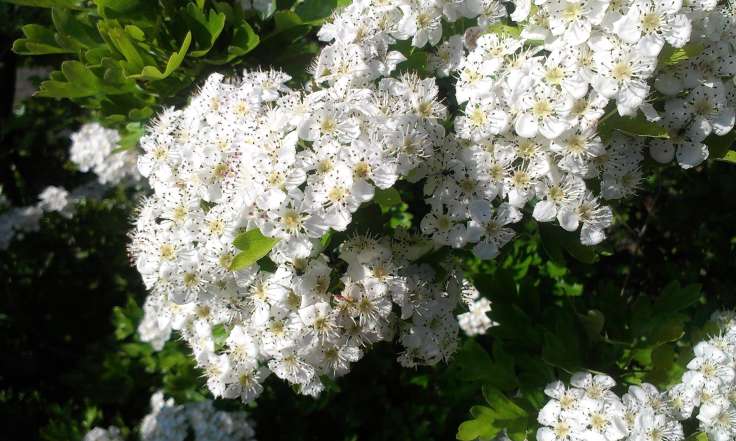
Crataegus monogyna (Hawthorn) blossom, a valuable and resilient forest garden crop.
The purpose within a forest garden is to create a beautiful and productive space which meets the myriad challenges of climate change.
I am not a natural born gardener. I’ve come to it late, initially provoked by the threat of climate change and tantalised by the prospect of a productive, low maintenance, wildlife friendly forest garden. As the saying goes, “There are many paths into a garden” and now I am enamoured of the sheer delight and wonder of this diversity of life in which I have a part. Oh, and the scientific nomenclature of all those plants has piqued my completist collector impulses and web designer nerdiness.
Still, the political impetus has not left me; how could it with headlines like ‘We have 12 years to limit climate change catastrophe, warns UN’, and The Insect Apocalypse Is Here? And with two young children, I can’t pretend I haven’t seen the warning signs. Goodness me, even the BBC has published advice on what you can do (TL;DR don’t eat cows).
Establishing a forest garden and teaching is my ‘thing’, my small way of contributing to a more sustainable way of living. And it’s so important to make it as accessible as possible, an inclusive endeavour that benefits everyone, not a naïve, nature-worshipping and survivalist autarky. No, indeed, that way leads to a strangely bourgeois cul-de-sac.
In terms of climate change and mass extinction, forest gardening ticks all the boxes on the local level. It is:
- productive
- wildlife friendly
- self-sustaining
- low carbon
- future friendly
Forest gardening is something that people can do to make a difference. It is direct action, politics with a small ‘p’, an act with positive consequences, in the words of @Saralimback:
“It’s what makes people realise they can make change.”
And once you realise you can change things in your own backyard, doing simple things that anyone can do, you realise you can instigate change in other ways too. If we only have 12 years to save the earth, we’d better make a start 🙂.